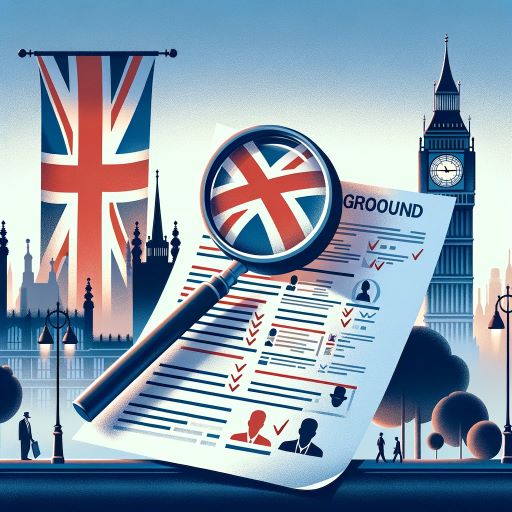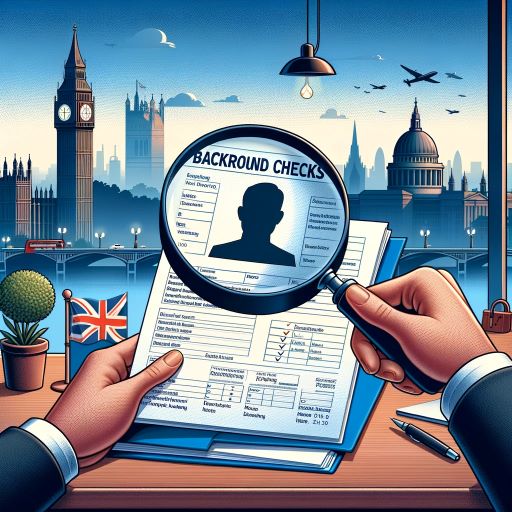

• Risk Mitigation: By adhering to BS7858 standards, organizations can establish confidence in the competence of their employees, reduce risks in sensitive environments, and uphold sectorspecific security standards effectively.
When understanding BS7858 security screening, employers in the UK benefit from a detailed standard that sets guidelines for thorough background checks in various industries. This standard, introduced in 2012 and regulated by the Security Industry Authority (SIA), serves as a cornerstone for ensuring the trustworthiness and safety of personnel with access to critical data and assets.
1. Qualifications Checks: Verifying the educational and professional qualifications stated by the candidate to confirm they meet the job requirements and possess the necessary skills and knowledge.
• The process entails credit checks, employment history verification, and SIA license validation.
It's vital for protecting data and assets by verifying personnel with access to critical information. Adhering to this standard builds confidence in competence, reduces risks, and upholds security standards in specific sectors, maintaining secure environments.
Ensuring that expats meet the necessary criteria through these background checks is essential for both legal compliance and maintaining a safe and secure working environment.
The Baseline Personnel Security Standard (BPSS) and the Disclosure and Barring Service (DBS) check are both used in the United Kingdom for background checks, but they serve different purposes and involve different levels of scrutiny.
While both are forms of background checks, their specific purposes, scope, and usage differ significantly, tailored to meet various security and safety requirements in employment and roles of trust
The BS7858 check refers to the British Standard (BS) 7858, which provides a code of practice for the security screening of individuals employed in a security environment. This type of vetting process is specifically designed for positions where the integrity and reliability of personnel are of paramount importance due to their access to secure areas, sensitive information, or involvement in the security sector. The BS7858 screening is often required for:
Security Personnel: This includes individuals working as security guards, CCTV operators, bodyguards, and any other roles directly related to physical security services.
Alarm, Lock, and Safe Engineers: Professionals involved in the installation, maintenance, or repair of security systems, locks, and safes, where they have unsupervised access to secure or sensitive areas.
Keyholders: Employees who have access to keys or codes for commercial properties, potentially outside of regular business hours, necessitating a high level of trust.
Staff in the Security Sector: This can extend to various roles within companies that provide security services, including management and support staff who might have access to sensitive operational information.
Individuals with Access to Confidential Information: Although not exclusive to the security sector, employees in roles where they handle or have access to confidential data or assets might also undergo BS7858 screening, depending on their employer's policies and the nature of the information.
Employees in Critical National Infrastructure (CNI): While not always mandatory, individuals working in or with CNI sectors (like energy, telecommunications, and water services) might be screened to BS7858 standards due to the sensitive nature of their work.
• Legal Compliance: Employers prioritize righttowork checks and employment references to comply with legal requirements and verify that candidates are eligible to work in the UK.
Preemployment screening is crucial because it serves as a reliable method for companies in any industry to refine their hiring processes. This practice of vetting candidates, including those from key suppliers, has become a norm for organizations of all sizes.
How to Do a Background Check in the Uk?,To do a background check in the UK, start by determining the level of check needed based on the role. Basic checks show unspent convictions, while Standard checks reveal spent and unspent convictions, cautions, reprimands, and warnings.

Once this verification phase is complete, the DBS issues the appropriate certificate based on the disclosed information. Employers play a vital role in ensuring the authenticity of the DBS certificate before making informed decisions about the candidate's suitability for the role.
3. Can you explain any gaps in your employment history?
What Is the Bpss Screening in the Uk? BPSS screening in the UK is an essential process for verifying individuals' identity and trustworthiness. It serves as the fundamental level of security checks required for various roles like civil servants, armed forces members, and government contractors. By confirming these aspects, BPSS helps mitigate risks and safeguard national security interests.

• Hiring individuals unauthorized to work in the UK
Directorship Check Reveals if an individual has been banned as a company director, reflecting on integrity. Identify conflicts of interest and assess honesty.
8. Misunderstanding Spent vs. Unspent Convictions: Not grasping the distinction between spent and unspent convictions might lead to making incorrect hiring choices based on outdated information.
• Industry Compliance: BS7858 is widely adopted in sectors such as finance, healthcare, and IT, offering an additional layer of protection for handling sensitive assets and ensuring compliance with industry regulations.
Initiating the DBS checks application process requires providing essential identity and address proof for Basic checks. For Standard and Enhanced checks, additional documentation is necessary. Remember, individuals can only request basic DBS checks for themselves. Once the application is submitted, employers need to authenticate the received certificate. The processing duration varies: Basic, Standard, and Enhanced DBS checks typically take 1 to 14 days.
For effective preemployment screening, employers must meticulously follow the guidelines provided for conducting Disclosure and Barring Service (DBS) checks. When carrying out Basic DBS checks, it's crucial to validate the identity and address of candidates.

In preemployment checks, DBS plays a vital role in examining candidates' criminal backgrounds for roles involving vulnerable individuals or high trust. It helps determine their suitability by providing details on spent and unspent convictions for informed choices. Understanding the purpose and eligibility of DBS checks is essential for compliance with legal standards and avoiding mistakes.
In the UK, Criminal Record Checks are commonly referred to as Basic, Standard, and Enhanced DBS checks. Basic checks primarily disclose unspent convictions in England & Wales. They're widely available for any purpose in Northern Ireland and Scotland.
What Is Bpss Used For? BPSS is used to verify identity, trustworthiness, and integrity for individuals in various roles in the UK, including civil servants, armed forces members, temporary staff, and government contractors. It's essential for accessing specific assets and working in areas with sensitive information.
